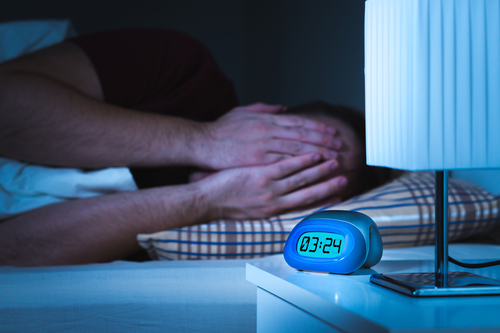Image rehearsal therapy useful to treat dream anxiety disorder
ANI Jun 15, 2018
According to a position paper from the American Academy of Sleep Medicine (AASM), image rehearsal therapy may be effective for nightmare disorder in adults.

The position paper reported that image rehearsal therapy is useful for the treatment of nightmare disorder and nightmares associated with post-traumatic stress disorder (PTSD). Image rehearsal therapy is a technique that involves altering the content of a nightmare by creating a new set of positive images and rehearsing the rewritten dream scenario while awake.
Although evidence was less clear for other treatments, the task force found that a variety of interventions may be used for the treatment of nightmare disorder, including cognitive behavioral therapy, hypnosis, and several prescription medications.In contrast, the task force concluded that the anti-anxiety medication clonazepam and the antidepressant venlafaxine are not recommended for the treatment of nightmare disorder.
"Helpful treatment options are available for adults who are experiencing distress due to nightmares," said lead author Timothy Morgenthaler. "The judgment and expertise of a knowledgeable clinician are essential to ensure appropriate treatment selection and effective management of nightmare disorder."
Nightmare disorder involves repeated occurrences of nightmares that cause clinically significant distress or impairment. It affects approximately four percent of adults, occurring in isolation or as part of other disorders such as PTSD, and it can significantly impair quality of life. Nightmare disorder also can exacerbate an underlying mental illness, such as depression or anxiety.
"The first step to get help for nightmares is to discuss this concern with a doctor, who may refer you to an accredited sleep center for a comprehensive sleep evaluation by a board-certified sleep medicine physician," said AASM President Douglas Kirsch. "Effectively treating nightmare disorder can improve sleep quality, resulting in less daytime sleepiness and improved alertness." The task force also identified a need for more randomised controlled trials and well-designed comparative efficacy trials to allow for further evaluation of treatments for nightmare disorder. The study appears in the Journal of Clinical Sleep Medicine.
-
Exclusive Write-ups & Webinars by KOLs
-
Daily Quiz by specialty
-
Paid Market Research Surveys
-
Case discussions, News & Journals' summaries